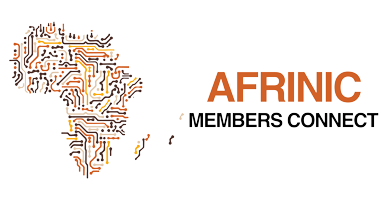22 November 2022
The AFRINIC Members Connect Meeting kickstarted on 22 November 2022 with Mr James Chirwa, Head of Member Services at AFRINIC, giving the opening speech. Mr Chirwa spoke on the need for a more robust engagement, collaboration and team spirit, which cannot be overstated if Africa is to create a future where the Internet is for the good of its citizens, shaped by diversity, innovation and inclusion.
We invite you to see the video of the opening remarks here
Mr Gilbert Nyandeje delivered the first presentation for the AFRINIC Tech Day. Mr Nyandeje talked about cyber risks as one of the most dangerous threats and gave several examples of cyberattacks happening worldwide. The issue of digital privacy and other problems associated with cybercrimes, such as traceability, were also discussed. Mr Nyandege highlighted that collaboration with organisations such as Interpol and governments is crucial to fight cybercrime.
Moreover, the issue of governments undertaking surveillance and the need for rendering governments accountable were also addressed.
Mr Nyandege finally highlighted that it is vital for Organisations, at the base, to equip their people with the necessary skills and create awareness around the risks of cybercrimes through social engineering mechanisms.
We invite you to see the video of this presentation here:
The slides can be viewed at Presentation Link.
Mr Yazid Akhano did the next presentation in AFRINIC's Members Connect from ICANN and delivered his presentation on African ccTLDs nameservers resilience.
Mr Akhano addressed the crucial issue of improving ccTLD resilience and demystified the concept of DNSSEC for a safer Internet. In his presentation, Mr Akhano stressed the need to adopt DNSSEC. He encouraged the remaining 33 ccTLDs in the African region to migrate to DNSSEC to improve the system's resiliency. Mr Akhano shared some statistics about Benin being the last African country to migrate to DNSSEC, and some statistics on IPv4 and IPv6 usage on nameservers in the African region and ASN diversity, which is crucial for Nameserver Routing Security.
We invite you to see the video of this presentation here:
The slides can be viewed at Presentation Link
Following Mr Akhano's talk, Mr Barrack Otieno described the role of AfTLDs in policy discussions for ccTLDs. Various activities, such as the Registry operations program, were highlighted through collaborations with AFRINIC, ICANN and ISOC.
The backing of several African pioneers, including INET, ICANN, and AfNOG, who made sure that AfTLD became a functioning organisation, was used to illustrate the AfTLD's historical context. By bringing back the management of ccTLDs from outside the African continent, such as dot guinea, Barrack emphasised the necessity to grow local ccTLDs while presenting statistics for the newest ccTLD, South Sudan (.ss). Barrack stressed that multistakeholder participation is key to the success of such training program initiatives, which prioritise the obligations of ccTLDs.
We invite you to see the video of this presentation here.
The slides can be viewed at Presentation Link.
Ms Alkhansa Abdalla then discussed the three types of incidents, namely Prefix/Route Hijacking, Route Leak, and IP Address Spoofing, and some statistics were shared. The requirements for using an IRR were explained, as well as tools for dealing with routing incidents. MANRS, or Mutually Agreed Norms for Routing Security, was discussed as a possible solution to these issues. Alkhansa explained that it provides critical fixes to reduce the most common routing threats through collaboration among participants and shared responsibility for the Internet infrastructure. This presentation described the mechanisms that lead to the validation of routing information on a global scale.
We invite you to see the video of this presentation here:
The slides can also be viewed at Presentation Link
The day ended with a presentation by Dr Amreesh Phokeer, who addressed the utility of the Internet Routing Registry. Amreesh explained that there are currently around 30 IRRs, one of which is managed by AFRINIC. Amreesh explained the role of the route objects that exist for IPv4 and IPv6, and Peers rely on IRRs to build filters to allow traffic and announcements. The different tools that can be used to pull those objects from the prefix list and make those filters were highlighted.
Some security issues involved in the use of IRRs were also discussed. The presentation then focused on a comparative study of objects used in the RIRs against those in other databases, such as the RADB and ALTDB. The study involved route and route six objects only. At ISOC, a tool known as route-checks is being used for monitoring, and various data were presented.
Following the study, the following recommendations were made:
- It is better to use the RIR data.
- The use of RPKI is encouraged.
- Legacy space holders should be encouraged to use the IRR and RPKI services.
We invite you to see the video of this presentation here.
The slides can be viewed at Presentation Link:
